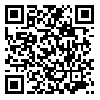BibTeX | RIS | EndNote | Medlars | ProCite | Reference Manager | RefWorks
Send citation to:
URL: http://dsme.hums.ac.ir/article-1-462-en.html


 , Hanieh Joukar ghahroodi
, Hanieh Joukar ghahroodi 

 , Narges Azimi
, Narges Azimi 

 , Zahra HasanBaklu
, Zahra HasanBaklu 

 , Samane Baseri
, Samane Baseri 

 , Raoofeh Karimi
, Raoofeh Karimi 


Introduction:This study aims to design, implement, and evaluate a group educational competition to enhance the specialized skills, professional ethics, and health-oriented lifestyle of nursing students at Tehran University of Medical Sciences. Given the pivotal role of nurses in the healthcare system and the significance of their education, this intervention seeks to optimize their professional development.
Methods: This educational development study was conducted at the Faculty of Nursing and Midwifery, Tehran University of Medical Sciences, involving 50 nursing students from the fourth to eighth semesters. On May 29, 2022, a group educational competition was implemented, incorporating a series of tasks and skills. A measurement tool was developed to assess performance in each competition item. In the health-oriented lifestyle section, all participants completed a self-report questionnaire at the beginning and end of the study, assessing their diet, physical activity, health responsibility, interpersonal relationships, stress management, self-actualization, mental health, sleep quality, and COVID-19 care practices. The specialized skills section, evaluated through an Objective Structured Clinical Examination (OSCE), comprised tasks such as patient education, managing motorcycle accident victims, intensive care unit patient care, drug therapy, and crisis management (e.g., earthquake response). The professional ethics section assessed participants' responses to scenarios involving ethical dilemmas, such as anger management, medication errors, and patient confidentiality. Undergraduate nursing students from the fourth semester onwards were invited to form teams of five to participate in the competition. The competition was held on the scheduled date, and participants were evaluated based on their performance in the various tasks and scenarios.
Results: In general, the scores of all students were higher in the area of lifestyle compared to 40 days before, and the average score of changes related to lifestyle after 40 days was 40.7. Providing practical lessons in the form of games and group activities could increase the motivation and interest of students and lead to the improvement of their ability to perform collaborative and group activities and better consolidation and permanence of what they learned.
Conclusion: the results showed that teaching through games can bring positive results and using this method in the field of nursing education and evaluation can improve the ability of nurses in the field of specialized skills, professional ethics and lifestyle.
Received: 2024/06/16 | Accepted: 2024/09/1 | Published: 2024/09/20
| Rights and permissions | |
 |
This work is licensed under a Creative Commons Attribution-NonCommercial 4.0 International License. |





